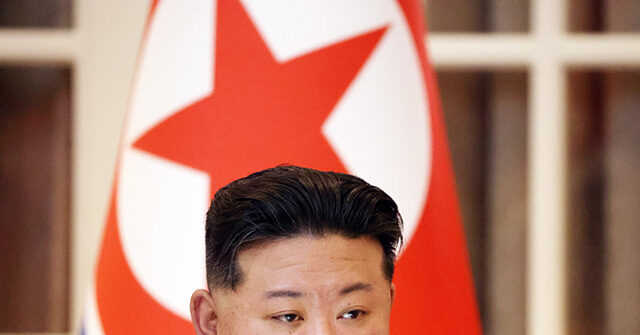North Korean state media recently addressed the martial law situation in South Korea, labeling President Yoon Suk-yeol’s actions as “shocking” and addressing him as a “fascist dictator.” The report from Pyongyang’s Korean Central News Agency (KCNA) condemned Yoon’s government, which they referred to as a “puppet regime” of the United States, for declaring martial law and using oppressive measures against its own citizens. The martial law, viewed as a desperate act by Yoon amid fears of being ousted, has drawn significant public outrage and condemnation from various political circles, including the opposition party. The KCNA’s rhetoric implied that Yoon’s actions were reminiscent of past military coups.
Details from the North Korean report painted a dramatic picture of the martial law enforcement in South Korea, citing the deployment of helicopters and heavily armed forces to confine the National Assembly. It suggested that the international community was closely monitoring the situation, indicating that the current political strife in South Korea might jeopardize Yoon’s hold on power. Interestingly, NK News noted that North Korea had taken longer than usual to comment on this significant political crisis, hinting that they may have been cautious about how it could affect their own citizens’ views of South Korea, which they often present negatively.
Jonathan Corrado, a policy director at the Korea Society, speculated that North Korea’s delayed response could stem from a desire to prevent their citizens from noticing South Korea’s societal strides, as bad news could inadvertently highlight South Korea’s advantages. He recalled how North Korea had previously gleefully reported on South Korean President Park Geun-hye’s downfall, which inadvertently showcased South Korea’s urbanity and democratic values to North Korean residents. This connectivity, where North Korean citizens see contrasting governance examples, might complicate North Korea’s narrative of superiority over South Korea.
North Korean defector Lee Hyun-seung suggested that the regime’s quietness regarding this crisis may also stem from a strategic calculation. They might anticipate that a push for regime change in Korea could backfire, inadvertently energizing South Korea’s conservative elements against any popular movement for impeachment. He proposed that North Korea also possesses organizations aimed at influencing South Korean politics, which could be jeopardized by North Korea drawing too much attention to itself during this tumultuous period.
The irony of North Korea’s criticisms did not go unnoticed, particularly given its reputation as a nominally authoritarian regime led by Kim Jong-un, who suppresses dissent severely compared to Yoon’s administration. The KCNA celebrated the protests against Yoon in Seoul, indicating a stark contrast with the absence of public dissent against Kim. Observers noted that authoritarian regimes like North Korea and Russia often relish the vulnerabilities exhibited by democracies, feeling reassured that internal chaos could benefit them geopolitically.
Moreover, analysts indicate that North Korea’s involvement in overseas conflicts, particularly its military support for Russia during its conflict with Ukraine, may limit its interest in creating disruptions with South Korea. As tensions rise with the West, it appears North Korea is opting for a more cautious approach, avoiding provocation that could distract from its objectives in international politics. The overarching narrative reflects a broader contemplation of how authoritarian regimes perceive and respond to the democratic struggles of their neighbors while attempting to sustain their own grip on power.

